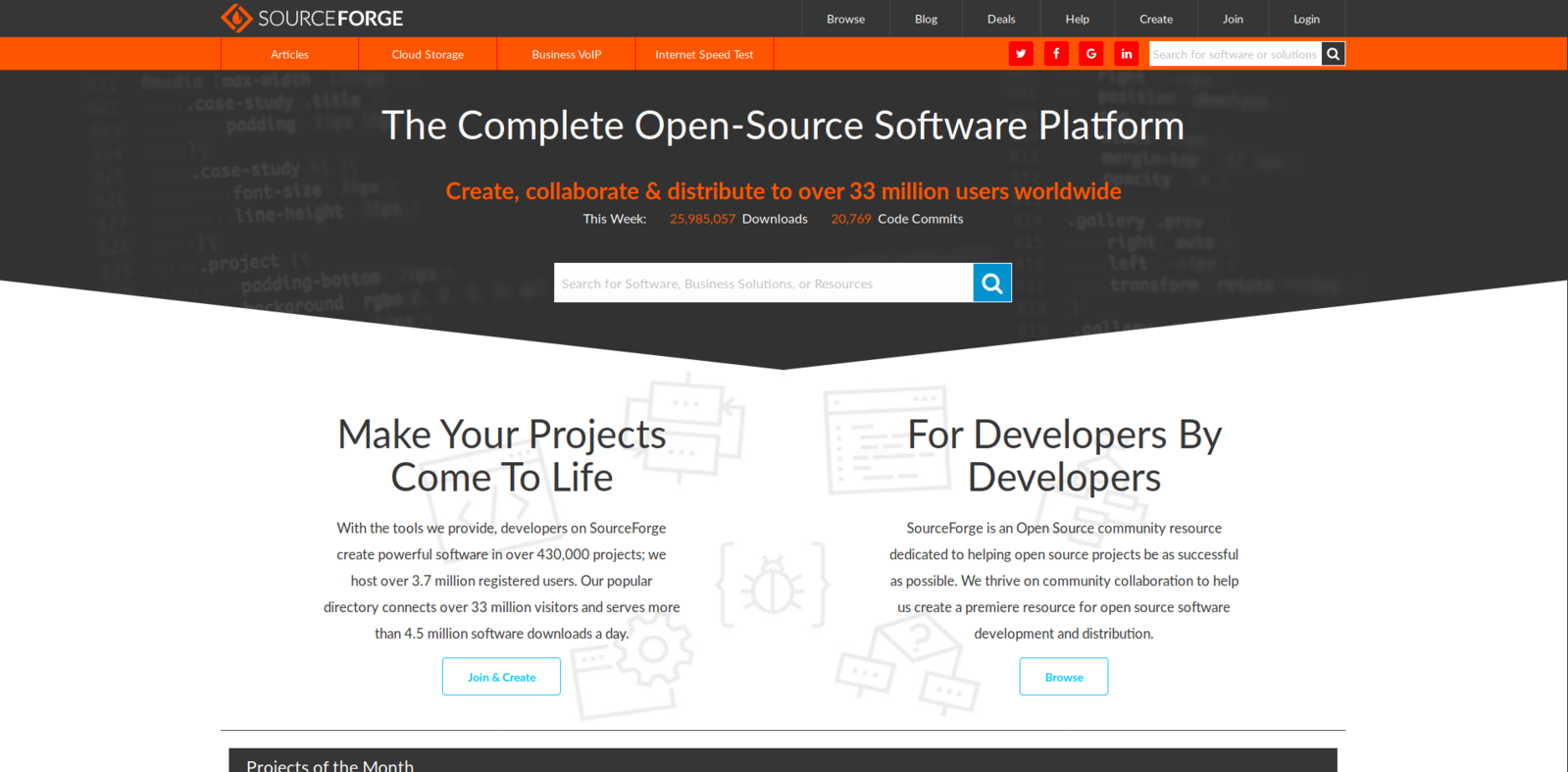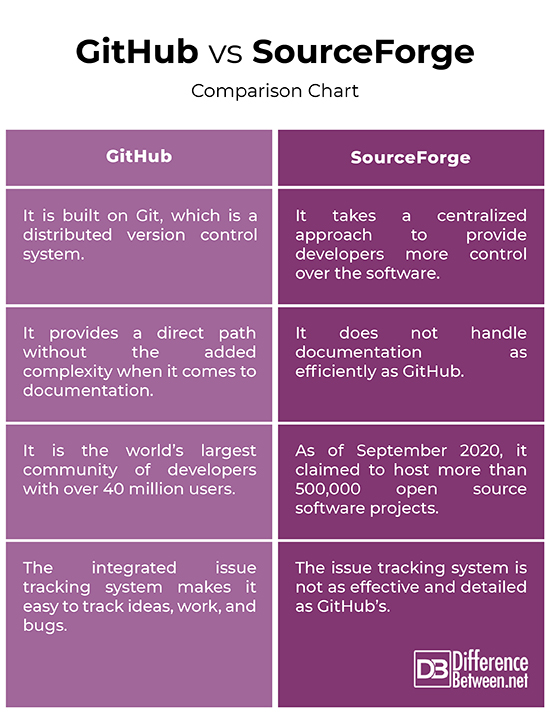Difference Between GitHub and SourceForge
If you’re into software development, then you must have heard about version control, the practice of effectively communicating and tracking all the changes made to the software code over time. It’s a system that keeps a record of the modifications done to the code and documentation over time. Version control has been a part of creative processes as long as software development has been around. GitHub is one of the most powerful and widely used version control tools out there. SourceForge is yet another name which once dominated the market but lost its ground to other similar platforms, like GitHub.

What is GitHub?
GitHub is probably the most popular and widely used source control platform that almost every developer uses to create and manage software development projects that involve code and committing changes. GitHub is a code hosting platform where you can store all your project files, revert to older versions of your project, and fork into new projects. It is probably the world’s largest community of developers who work and collaborate to shape the future of software, together. With over 40 million registered users and over 190 million repositories (projects) hosted, GitHub is the No. 1 hosting platform to build and collaborate on code.
GitHub is a free and open-source version control system that allows anyone to use it, build on top of it, and even add to it. Built on Git, the idea of GitHub is to facilitate version control and bug tracking aspects of software development. Almost everything on GitHub revolves around a repository which contains all the project related files, including the ones that track all the version of the project. A repository also tracks who collaborate on what and how. On top of that, it also allows users to star, fork and clone repositories. It also integrates with other platforms such as Google Cloud, Amazon to extend your workflow.

What is SourceForge?
SourceForge is a web-based code hosting service that provides software developers a centralized place to handle open-source software projects. Although, SourceForge has been around since long before GitHub came to the picture, the former couldn’t manage to gain as much traction as the latter did in the last few years. In fact, GitHub is one of the foremost choices of the open source community when it comes to hosting code repositories online. Founded in 1999, SourceForge was the first provider to offer this service to open-source projects free of cost. The website is powered by the proprietary SourceForge Enterprise Edition, forked from the last open source version available.
As of September 2020, the repository platform claimed to host more than 500,000 open source software projects created by over 3 million developers and delivered over 4 million downloads every day. The offers developers the opportunity to briefly describe their program, and these descriptions can be searched using specific keywords. SourceForge allows smaller projects that do not have any funding to get started with no startup costs. Also, the projects on SourceForge are provided with database access to a MySQL database, which can be used for developing and testing the project itself. As for collaboration, it provides mailing list support and forum discussion software for each project.
Difference between GitHub and SourceForge
Platform
– GitHub is the leading repository hosting platform to build and collaborate on code, and it’s a distributed version control system. GitHub is the No. 1 hosting platform and the most preferred tool among developers. SourceForge takes a centralized approach to provide developers more control over the software. GitHub is built on Git, which is a distributed version control system wherein the complete codebase is mirrored onto every contributor’s local machine.
Documentation
– Having a GitHub repo makes it easy to manage and store various revisions of your project, which can be word documents, spreadsheets, and other kinds of data. Quality documentation is the trademark of any successful software project, and when it comes to documentation, GitHub provides a direct path with less redundancy and without the added complexity. Although, SourceForge has a Git interface, it does not handle documentation as efficiently as GitHub.
Community
– With over 40 million registered users and over 190 million repositories (projects) hosted, GitHub is the world’s largest community of developers who work and collaborate together to fuel the platform. The entire platform is a hive of developers, contributors and collaborators who work together on projects from virtually anywhere in the world. SourceForge is losing ground to other commercial open source players, including GitHub.
GitHub vs. SourceForge: Comparison Chart

Summary
While both GitHub and SourceForge are two of the popular code hosting platforms for creating and managing software development projects out there, GitHub is the most preferred VSC tool among developers looking to collaborate on software projects online. GitHub is the world’s largest community of developers with over 40 million users, and it is the leading code hosting platform with over 190 million projects having their code hosted on it. SourceForge, following a lot of unwanted attention, is losing ground to other commercial code hosting platforms, including GitHub.
- Difference Between Caucus and Primary - June 18, 2024
- Difference Between PPO and POS - May 30, 2024
- Difference Between RFID and NFC - May 28, 2024
Search DifferenceBetween.net :
Leave a Response
References :
[0]Guthals, Sarah and Phil Haack. GitHub for Dummies. New Jersey, United States: John Wiley & Sons, 2019. Print
[1]Bell, John T., et al. J2EE Open Source Toolkit: Building an Enterprise Platform with Open Source Tools (Java Open Source Library). New Jersey, United States: John Wiley & Sons, 2003. Print
[2]Rother, Kristian. Pro Python Best Practices: Debugging, Testing and Maintenance. New York, United States: Apress, 2017. Print
[3]Image credit: https://cdn.pixabay.com/photo/2014/07/15/23/36/github-394322_1280.png
[4]Image credit: https://commons.wikimedia.org/wiki/File:SourceForge_net_update.png
